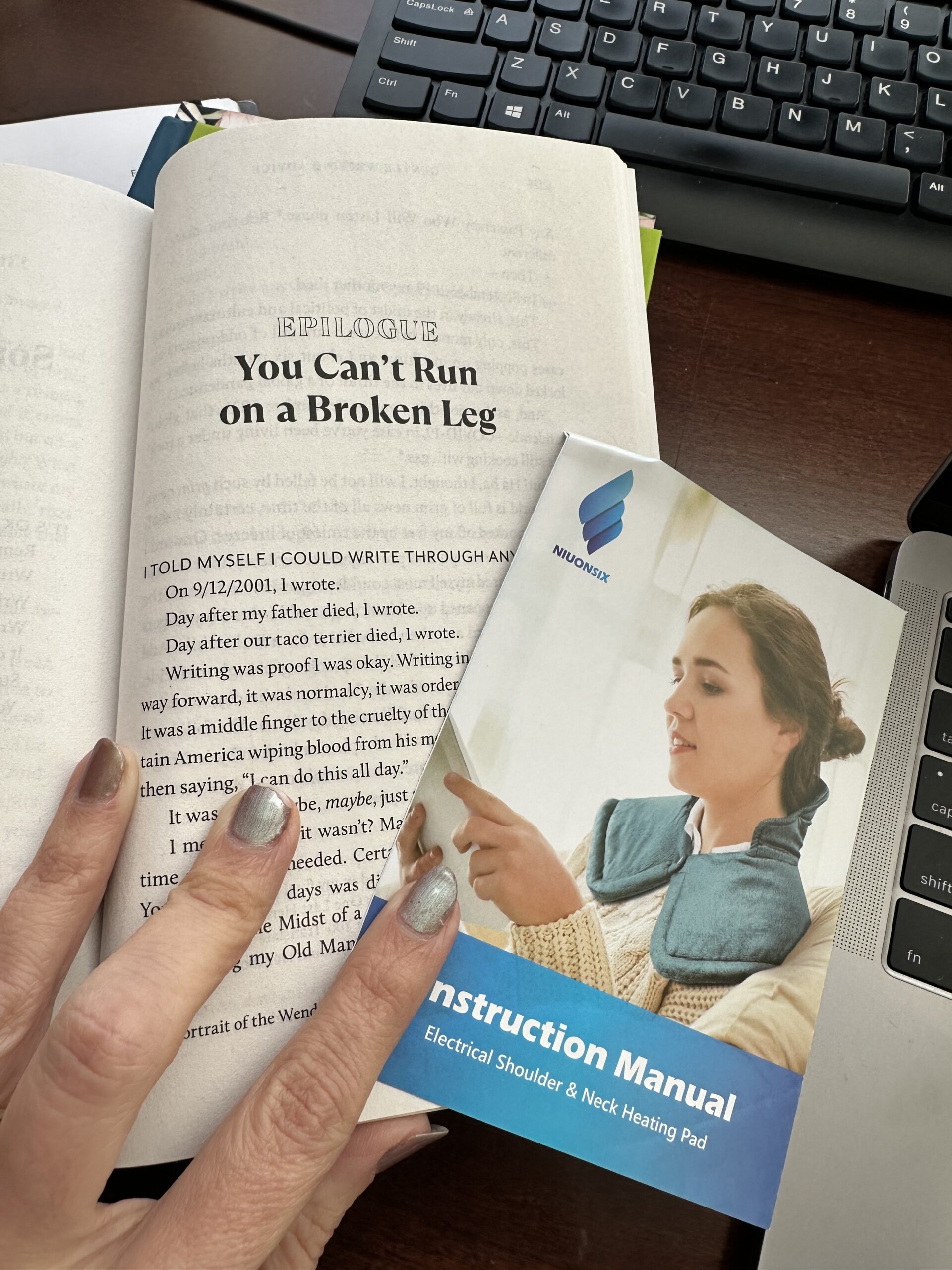Back in October, I wasn’t sure I’d get to write these words: on January 13, I graduated with my MFA in Creative Writing. I started the program at Regis as one kind of person and ended it someone different. Not simply in the sense that I learned and grew as a writer, though I hope that is true as well—the changes I mean affected my health: physical, emotional and mental.
In her craft book Story Genius: How to Use Brain Science to Go Beyond Outlining and Write a Riveting Novel, Lisa Cron explains, “You can’t write about how someone changes unless you know, specifically, what they’re changing from.” So here is a before snapshot of who I was: a daughter, sister, wife, mother of three, freelance writer, former theater director and performer, extroverted, overscheduled, type A, people-pleasing lover of all things dark because underneath the “I’ve got everything under control” veneer, part of me always knew disaster lurked, waiting to catch me unprepared. I am still most of those things—I do try to over-schedule and people-please less—what has changed is how I prioritize my various roles and responsibilities after two traumatic injuries.
The first occurred one week after completing my opening residency, when I dislocated my right shoulder skiing. It was my first day of the season. My first run. A double-black, granted, but one I’d done a hundred times before without issue. I wasn’t skiing recklessly, under the influence, or even fast. On the top of a mogul, my downhill ski stuck in a snow-covered shrub and I tipped over like a felled tree, landing with my shoulder against a rock. Bad luck all around, followed by a glimmer of good: while I had torn ligaments and severed a nerve, my rotator cuff remained intact. No surgery needed, just six months of medieval torture disguised as physical therapy.
Not the start I’d imagined for my second Master’s—for my first, a decade prior, I’d been a full-time working mom of a toddler commuting over an hour from Rockville, Maryland into Georgetown two nights a week for four back-to-back hours of journalism classes. I’d assumed my low-residency MFA program would be much more manageable in comparison but that wasn’t the case when I suddenly found myself unable to drive, type or even feed myself well without the use of my dominant hand, not to mention the constant pain and resulting sleep deprivation. However, thanks to a lot of support from friends, family and Regis faculty, I still managed to meet my deadlines while regaining strength, mobility and optimism.
The second injury occurred this past October, when I suffered a stroke as a result of a dissected vertebral artery. My neurologist and I concluded I must’ve damaged the artery—one of two that runs along the back of the spine to the brain, thankfully a person can live with just one, like kidneys, those it’s not ideal—during an intense dance workout. Life is perhaps never more obviously capricious than when we are doing all the right things and bad stuff still happens. Once again, I found myself dependent on the help of others to complete even the most basic tasks. Between the blinding headaches, mental fog and inability to turn my neck, I couldn’t sleep, drive or focus. My final thesis, the first 250 pages of my novel, was due in less than two months. An email arrived from the program director, suggesting I postpone my defense and take another semester. I thanked her for her understanding but decided to forge ahead. Though I had no idea how to manage it, I knew writing my thesis to completion would help me fight the sense of powerlessness after the most frightening experience of my life.
We all face obstacles to achieving our goals and dreams: time, money, gate-keepers, prejudice, limitations both physical and mental, exterior and self-imposed. Experiencing traumatic injury enabled me to write a deeper, more empathetic story with higher stakes, and in turn, writing the story helped me endure the pain and loss of the person I once was. As our upcoming Keynote speaker Chuck Wendig puts it in Gentle Writing Advice: How to be a Writer Without Destroying Yourself, “Writing was proof I was okay . . . it was normalcy . . . order in the face of chaos . . . a middle finger to the cruelty of the universe.” Whatever you may be battling in your own life and writing journey, I hope the practice of creating worlds with words fortifies, comforts and heals you.


Oh, wow, Rachel. That’s so much to overcome. You are a shining example of how writing can help us make sense of life, the world, and our own situations. Congratulations on overcoming and achieving! Go you!
Thank you, Kelley. The support of my writing communities really helped. Onward together!